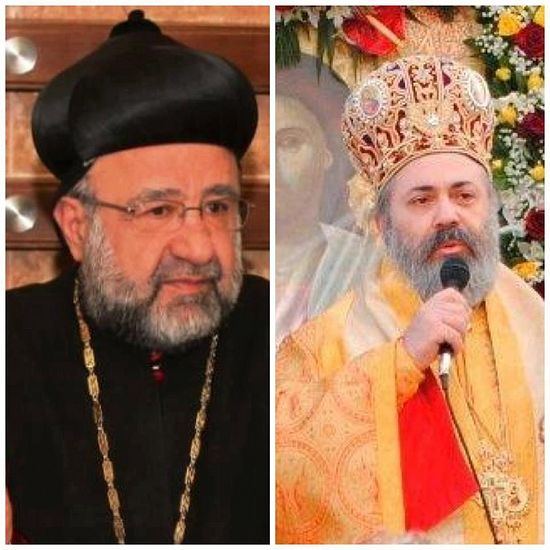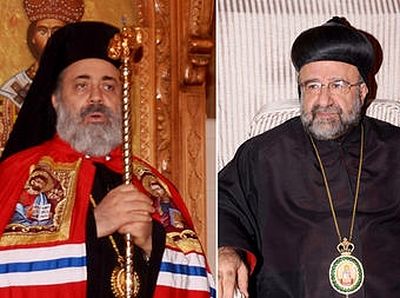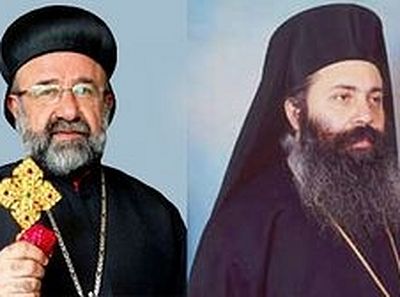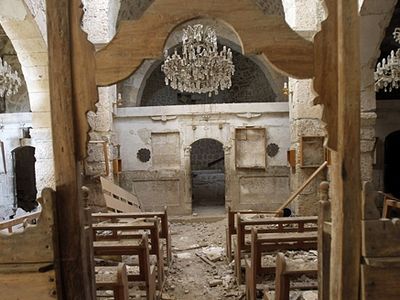At what point do you stop hoping for a missing loved one to turn up alive? How many years must you follow fruitless leads, and cling to rumors of life that lead to disappointment? Syria’s Orthodox Christians, and their kindred around the globe, are faced with such a crisis.
Two years ago, a pair of bishops from Aleppo were taken captive by Islamist rebels. Metropolitans Paul and John had gone to negotiate the release of some clergy held hostage by Syrian “opposition fighters.” On the way home, their car was ambushed. The body of their driver was left sprawled across the road, but no trace of these shepherds of the Syrian flock has been found.
For two years, Orthodox Christians worldwide have been praying for their return, but at this point it seems the best we can hope for is a return of their remains. Even that would be a gift. We would enshrine their bones in holy temples, and venerate them as Christians have martyrs’ relics since the days of ancient Rome.
But how do you decide to stop hoping for a living reunion? When do you make the call to give someone a funeral in absentia? Parents have wondered this about missing children. Spiritual children now wonder this about spiritual fathers.
If there were some proof of life, we’d continue praying for their safe return. But if their death could at least be confirmed, we’d paint their icons, and sing their hymns. We’d stop praying for them, and ask them to pray for us.
One thing we know: Christians across the Middle East are suffering like few Westerners can imagine. As an American, it’s frustrating that my country deserves some blame for that. Since operation “Iraqi Freedom,” Iraq’s Christian community has been all but annihilated. Since we helped topple Qaddafi, Libya has become a killing field where Coptic and Ethiopian migrants are slaughtered by the dozens.
And as our presidential campaign gears up, hawkish cries go out to complete this process in Syria. Even as ISIS controls half that country, some candidates continue seeing Bashar Assad as enemy No. 1. They speak about replacing both him and ISIS. With what? More chaos.
Two years ago this week, I spoke with a leading Syrian bishop in America about his native country’s civil war. He recalled how, in the 1990s, when he was headmaster of a church-run orphanage and school, Assad came to visit one day and see the work that school was doing. He even brought his family. After a tour, Assad was so impressed with the school that within weeks, he had a new computer lab built.
Assad is a dictator, and not a benevolent one. But the alternatives seem much worse. Which is something America may want to consider before replacing him.




